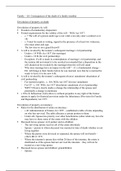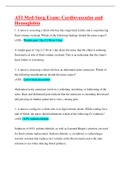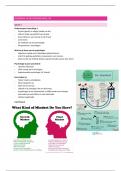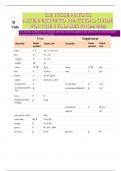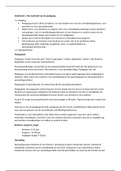Summary
Summary Family Law Notes - Consequences of the death of a family member
- Module
- Family Law
- Institution
- City University (City)
Full family law notes on the consequence of the death of a family member including: Devolution of property on death Devolution of property on intestacy Categories of applicants under Inheritance (Provision for Family & Dependants) Act 1975 Reasonable financial provision Inheritance
[Show more]
